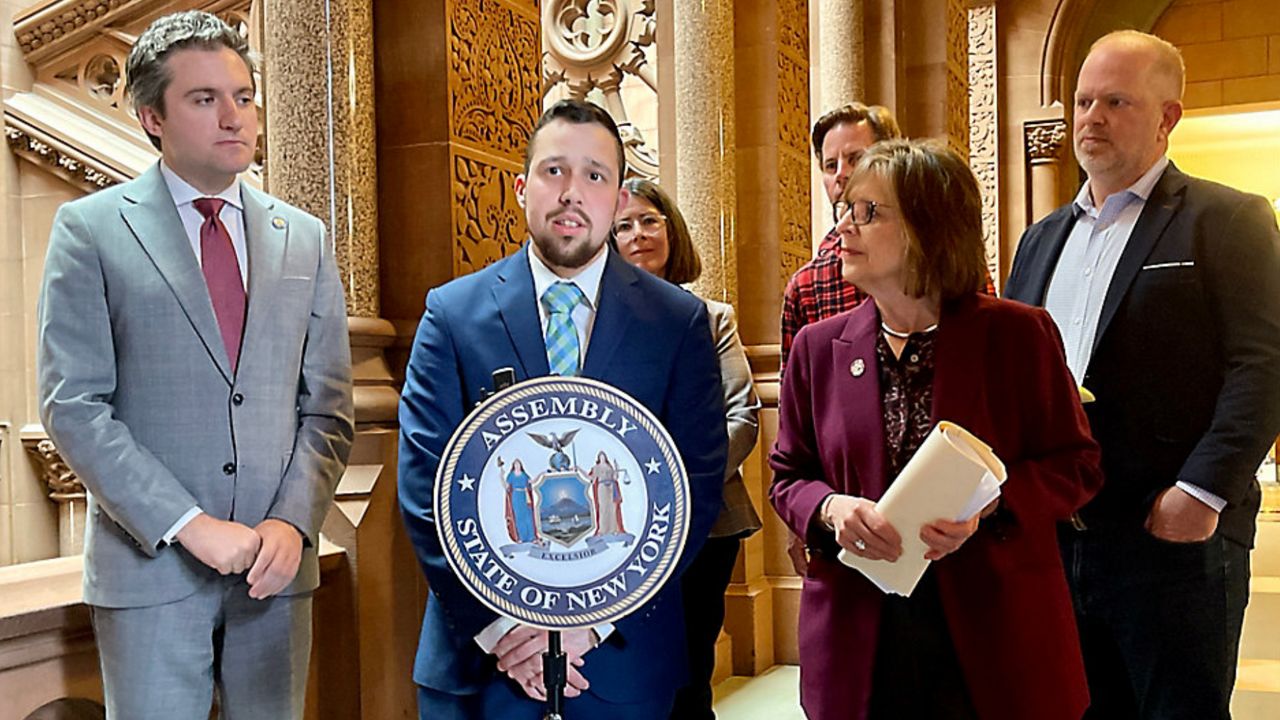Retired law enforcement and federal regulators from multiple states penned a letter to New York leaders Monday warning against a proposal to allow direct shipments of craft alcoholic beverages to consumers as lawmakers fight for the measure to clear the Legislature in the last month of session.
Lawmakers have long mulled changes to the state's Alcohol and Beverage Control law, which includes provisions that date back to the Prohibition era in the early 20th century. They're pushing hard for legislative leaders to bring a bill to the floor to permit cideries, distilleries and other small beverage producers to ship to customers across the state — as wineries have done for more than 20 years.
But retired state and federal law enforcement from around the country, including former New York City Sheriff Edgar Domenech, sent a letter to Gov. Kathy Hochul and legislative leaders urging them to reject the direct shipping of alcohol because they argue it will increase underage consumption of alcohol, violent crimes and alcohol contamination.
"As evidenced in other states, it will also overwhelm limited law enforcement resources that are already stretched past capacity handling violent crime," they wrote. "Recent reports show that experimental policies to permit direct alcohol shipment in other states, including states neighboring New York, have failed with dangerous consequences. States have lost millions in tax revenue."
Meanwhile, bill sponsors Sen. James Skoufis and Assemblywoman Donna Lupardo rallied in the Capitol on Monday afternoon with several craft beverage distillers and members of the New York Farm Bureau fighting to expand direct alcohol shipment to New Yorkers.
"We are not opening the door to Grey Goose getting shipped to people's doorsteps," Skoufis said.
About 200 craft distilleries have opened since the state's Farm Distillery Act in 2007 — but several distillery and cidery owners said they may close in the next year without the additional digital market for farm beverage producers. About 20 have shuttered in the last few years.
"There are farmers who are growing the products that these folks are turning into craft beverages, so when we put a strain on our distillers, on our cideries, we're putting a strain on economic development and tourism initiatives and also our agricultural communities," said Lupardo, who chairs the Assembly Agriculture Committee.
The largest liquor distributors in the state, Empire Merchants and Southern Glazer's Wine & Spirits, have posed the greatest pushback to the legislation over the last few years.
Some New York retailers directly ship spirits to consumers via a third-party or an e-commerce platform like Drizly or ReserveBar, but craft manufacturers reap little profit from those sales. However, most distillers in the state are too small for third-party distribution.
Advocates on Monday argued when distilleries and cideries were permitted to directly ship products to consumers at the height of the COVID-19 pandemic in 2020, it did not cause an increase in underage alcohol consumption or revenue loss to retail stores.
"Buying bottles this way is expensive and requires advanced planning; does that sound like very many underage drinkers that you know?" said Teresa Casey, executive director of the state Distillers Guild.
Delivery companies during the pandemic mandated alcohol deliveries require an adult signature and an I.D. check. Casey said the system was successful and questioned the concerns raised by retired law enforcement.
"New York's public policy makers ... have worked too hard and too much to grow this dynamic sector to have it collapse now to a system with a simple lack of access," Casey said. "It's a matter of being fair and a matter of survival."


